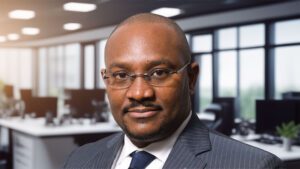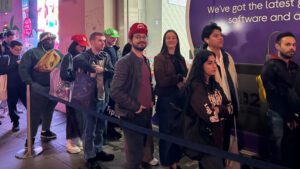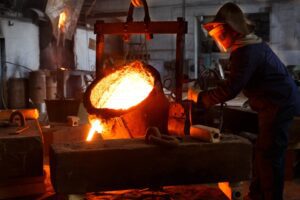In the heart of Brooklyn, New York, lives a man quietly making waves in the real estate world. His name is Schelton Assoumou. A former Wall Street professional turned real estate developer, Schelton is focused on something different—building homes that people can actually afford.
“I didn’t just want to build buildings,” he says. “I wanted to build opportunity.”
Schelton’s journey started far from Brooklyn. He was born in Oakland, California in 1976. His father, Martin Ngoran Assoumou, was from the Ivory Coast. His mother, Maureen Williams, came from Trinidad. Education and international exposure shaped his early years. He spent time in Africa, Europe, and South America, attending French international schools and learning multiple languages.
“I grew up seeing many different ways people lived,” he says. “It helped me see how important housing is—not just as shelter, but as dignity.”
Schelton later earned degrees in Economics and Business Administration from the State University of New York at Stony Brook. He was also a standout tennis player and a member of Phi Beta Kappa and the Golden Key National Honor Society. His academic path eventually led him to Harvard Business School.
But before Harvard, there was Wall Street. He joined J.P. Morgan in 1996 and worked in investment banking for more than a decade. His resume includes high-stakes areas like asset-backed securities, structured finance, and distressed debt. In total, he helped lead over $35 billion in transactions.
Still, something was missing.
“I learned a lot on Wall Street,” he says. “But at some point, I wanted my work to have a more direct impact on people’s lives.”
In 2008, Schelton made a bold move. He left finance and entered the world of real estate development. The decision wasn’t just about business—it was personal. He saw what rising rents and gentrification were doing to communities across New York City.
“Too many families were being pushed out of their own neighborhoods,” he explains. “I knew there had to be a better way.”
Through his company, Brownstone NYC, Schelton began developing multi-family, mixed-use, and affordable housing projects. What sets his work apart is the focus on community. Many of the residents in his buildings are veterans, single mothers, and survivors of domestic violence. These are people who were once in shelters and are now living in permanent homes.
“We don’t just build for people—we build with them,” he says.
One way Schelton is addressing the housing crisis is through modular construction. Instead of building everything on-site, modular homes are made in a factory and then assembled on location. It’s faster, often cheaper, and creates less waste.
“I believe modular construction can be part of the solution,” Schelton says. “It’s not perfect, but it helps us build more homes in less time.”
Still, he’s realistic about the challenges.
“New York isn’t always quick to adapt,” he adds. “There are zoning rules, transportation issues, and skepticism. But if we want change, we have to try new things.”
Schelton also advocates for more diversity in real estate development. As a minority developer, he understands how hard it is to get a seat at the table. Lack of access to capital and established networks are real barriers.
“This industry wasn’t built with us in mind,” he says. “But we’re here now, and we’re not going anywhere.”
He’s not just focused on buildings. Schelton also launched ASK Second Chance, a nonprofit that supports people re-entering society after prison or while on probation. It’s one more way he’s giving back to the city that raised him professionally.
When asked what success looks like, Schelton doesn’t mention money or awards.
“Success is when someone walks into one of our buildings and says, ‘I feel safe here. I feel seen,’” he says. “That’s what matters.”
He’s humble about his achievements. He credits his upbringing, education, and mentors for his journey. But it’s clear that his focus and drive come from something deeper.
“There’s no shortcut,” he says. “If you want to change something, you have to stick with it, even when it’s hard.”
In a city filled with skyscrapers and luxury condos, Schelton Assoumou is focused on people. On homes. On community.
Not just building for profit—but building for purpose.






